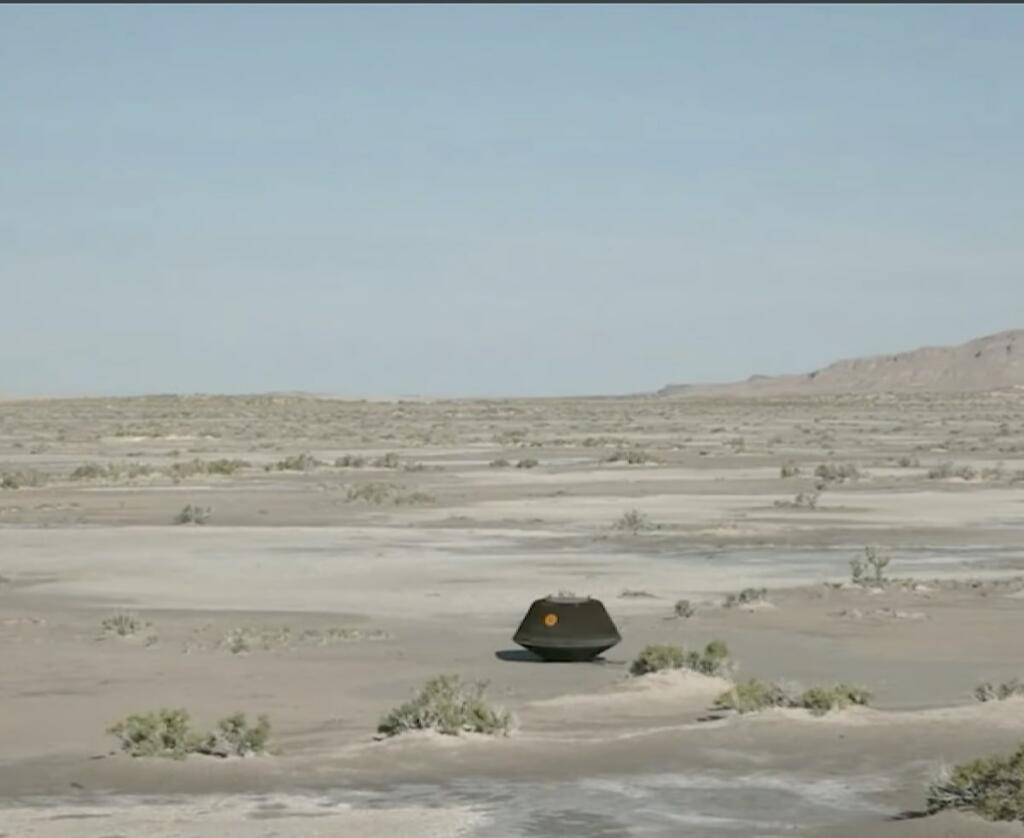On Sept. 24, 2023 NASA recovered a 250-gram dust sample from the Bennu asteroid, marking the first sample return of its kind in America and concluding the seven-year OSIRIS-REx mission. The asteroid sample mission was launched in 2016 and traveled an estimated 3.86 billion miles before it first landed on the Bennu asteroid in 2020. the Bennu asteroid samples collected by the OSIRIS-Rex mission contain water, carbon and organic molecules — the building blocks of life.
The sample has since been kept under a “nitrogen purge,” connected to a continuous flow of nitrogen to keep it pure of “earthly contaminants.”
“Bennu is a potentially hazardous asteroid, and what we learn from the sample will help us better understand the types of asteroids that could come our way,” NASA Administrator Bill Nelson said when the sample was recovered.
“At nearly 5% carbon by weight, carbon being the central element of life, far exceeding our goals of 60 grams. This is the largest carbon-rich asteroid sample ever returned to Earth,” Nelson said. “First analysis shows samples that contain abundant water in the form of hydrated clay minerals, minerals and carbon.”






Brian Wang is a Futurist Thought Leader and a popular Science blogger with 1 million readers per month. His blog Nextbigfuture.com is ranked #1 Science News Blog. It covers many disruptive technology and trends including Space, Robotics, Artificial Intelligence, Medicine, Anti-aging Biotechnology, and Nanotechnology.
Known for identifying cutting edge technologies, he is currently a Co-Founder of a startup and fundraiser for high potential early-stage companies. He is the Head of Research for Allocations for deep technology investments and an Angel Investor at Space Angels.
A frequent speaker at corporations, he has been a TEDx speaker, a Singularity University speaker and guest at numerous interviews for radio and podcasts. He is open to public speaking and advising engagements.


Back in July 1976, National Geographic magazine published an amazing article. It took place in 2036 (This is from old memory, so forgive me if my memory of a potential future is off a few years…) The article talks about space colonies “miles long” constructed from moon regolith being shot to the L5 location using mass drivers. (L5 refers to “LaGrange Point”, one of several locations were Earths, and our Moons gravity cancel each other out. Most people reading this know that…) Objects at those locations have a habit (usually…) of staying there, w/only a little nudge occasionally…
It would seem (IMO) asteroids are easier to get to, we know are loaded w/raw building materials, including precious metals, no nation or person (for now) own. First come, first serve… We have a tendency to over-estimate technological development in the “short term”, but greatly underestimate it in the long term. But we have to start someplace. Why not here/now?
P.S; That article blew my mind, in the most inspiring
With that much carbon and water making methane fuel on asteroids for Starship is possible.
Never mind if you pick an icy comet for your source of fuel.